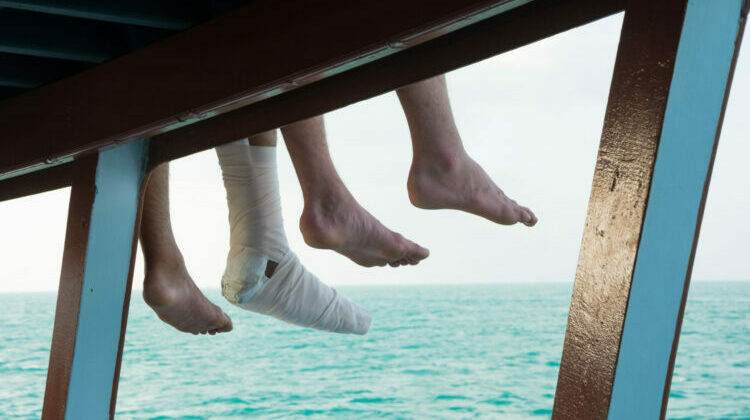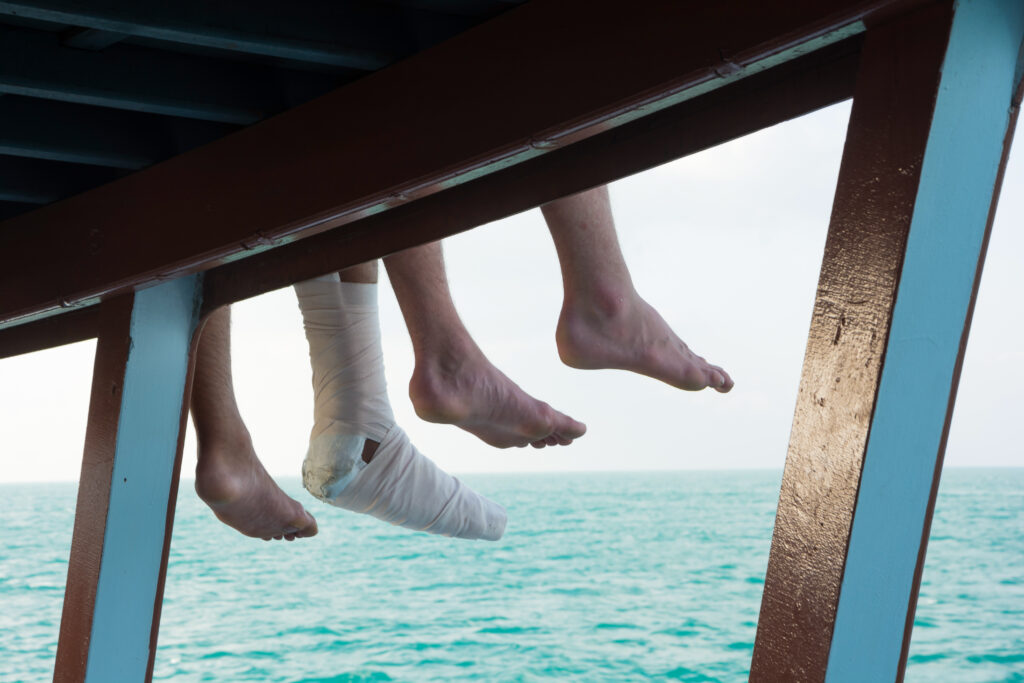
There’s a lot going on in the world of travel insurers. Foreign airlines entering the Dutch market and existing parties that want to strengthen cooperation with partners in the travel industry. In this special, TravMagazine lists the developments. HanseMerkur spends six months in the Netherlands
‘We are growing faster than expected’
Last autumn, Jasper Wiersema started his new adventure as country manager for the Netherlands of HanseMerkur: launching the German travel insurer HanseMerkur on the market. “We’re not a startup that wants to capture market share quickly,” he said at the time. Six months later, he talks about his findings. “Our focus has not changed: we are here for the longer term and our goal is to build long-term and high-quality customer relationships,” says Wiersema. ‘Rapid growth is not and was not a goal, but we were still surprised by the high demand, after the interview in TravMagazine, our presence at the Vakantiebeurs and at TravDay. Insurance remains a difficult subject and there is a great need for personal contact to be able to present all questions calmly. All in all, we are growing faster than expected.’
Do you notice that there is a crowding out market when it comes to travel insurance?‘Of course, there are existing collaborations in the field of insurance. We focus on ourselves and the added value that we offer as HanseMerkur. A travel agent is not an insurance agency, his or her expertise is putting together a beautiful travel experience. The insurance is an important addition. On the one hand, it gives peace of mind to make the journey even more carefree, on the other hand, as an extra income. We make insurance easy, with personal support through our partner desk.’ 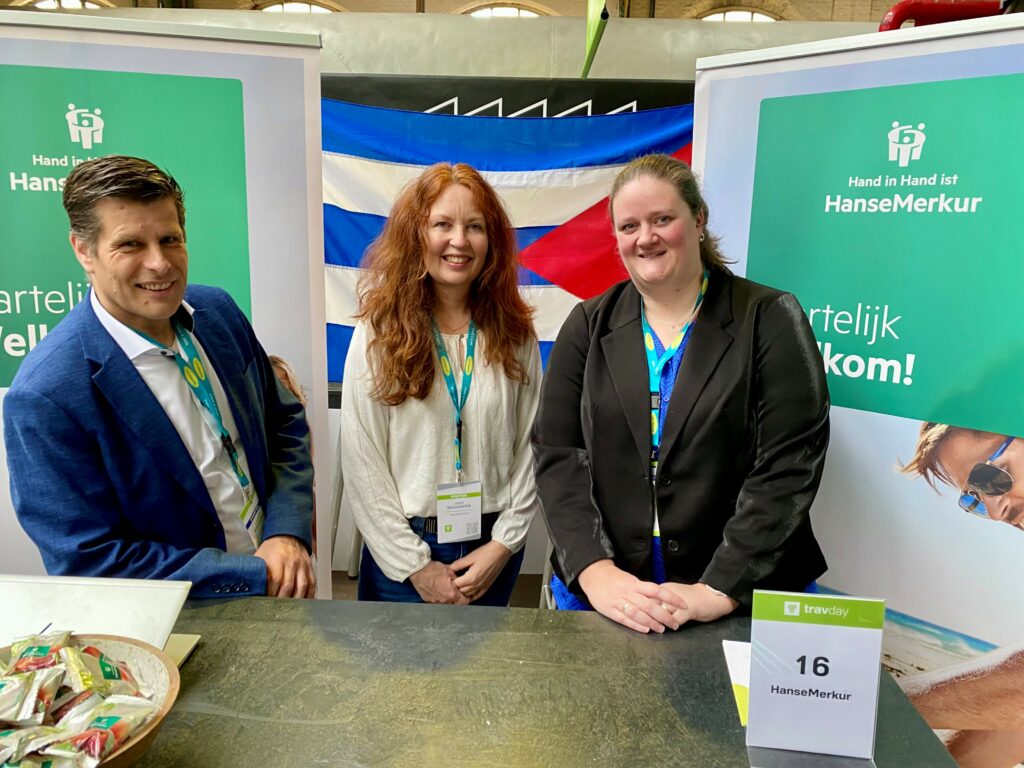
What questions do you hear about insurance in the market? ‘They are so numerous and varied that we could talk for hours. I do have a few examples: for example, we were approached by a provider of active travel. He ran into the fact that sports equipment must always be insured against damage, loss and theft as an additional amount. For us, this is already included in the standard premium. Speaking of active: people often don’t think about the fact that you do things on holiday that an insurer sees as risky sports. This is well known from scuba diving and skiing, but what if your client turns out to be trail running on their own initiative, doing a via ferrata or deciding to go horseback riding? These are often seen as risky and therefore exempted sports, while it is insured as standard with us.’ ‘You can also benefit from our broader conditions with the cancellation insurance. We received the question from someone with a customer who asked if the death of his old dog could be insured. Normally, the cancellation insurance is limited to illness and death of yourself and/or close relatives. With us, illness, accident or death of the dog or cat is also insured.’ 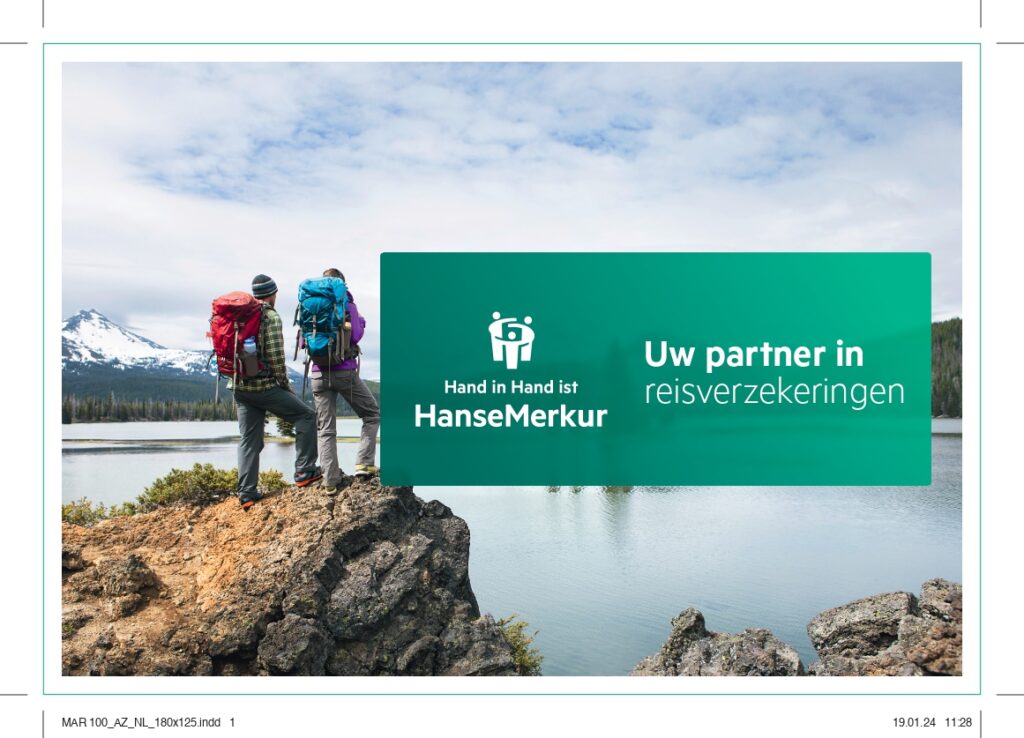
Infotorial
AXA on the future of travel insurance
After global unrest, conflicts and threatening natural phenomena, is today’s traveller definitively convinced that it is better to leave well insured on his trip? Or will we go back to the situation before corona? Joeri Marien, Sales and Marketing Director Benelux, is happy to give a fresh perspective on the situation regarding travel insurance. What do travelers currently expect from their travel insurance? ‘Flexibility and peace of mind. From this point of view, customers once again find good travel insurance more important and take out a policy more often, with better guarantees. The discrepancy between what people think they need in a travel policy and what they actually use has narrowed. Consumers’ time is scarce. The digitization of the travel sector is therefore continuing: travelers prefer to buy all travel products in one place and in one click. From plane tickets to the hotel and the amusement park on day five. And of course also their travel insurance, which offers coverage from the next day. One thing is certain: the pandemic has made travellers aware of the importance of good cancellation insurance; That way, he or she can book the trip with confidence, covered against possible setbacks.” Which risks weigh most heavily in travel insurance? “A few years ago, travellers often attached the most importance to cover against baggage loss or cancellation. Now they realize that a lost suitcase is not the worst thing that can happen to you. Even a trip that is canceled doesn’t mean the end of the world. You’ve lost the experience (and the money) – and that’s a shame, of course – but it doesn’t cost you anything extra either. It’s different when you’re unlucky enough to end up in an American hospital or have to be repatriated from Bali. The chance is small, but the financial consequences are all the more serious. Sometimes people never recover from those skyrocketing costs. Travellers are once again focusing on what really matters and are willing to pay for peace of mind and comfort. We also see that the media are paying more and more attention to those unfortunate stories in which people without travel insurance get into trouble abroad and end up in a horror story.’ 
Travel remains potentially problematic with cancelled flights, a lack of rental cars, forest fires, heat, flooding… What impact does this have? ‘We clearly notice that people are erring on the side of caution. They are more likely to book through a recognized travel agency and take out travel insurance to make sure they are helped. But if, despite everything, everything goes relatively smoothly next summer, it may just as well happen that travelers will be less inclined to take out travel insurance in the long run. We’ll have to wait and see.’ What has been the biggest challenge for travel insurers in recent years? ‘We were confronted with a number of issues that even we were not prepared for. Not everything is written down in procedures and general terms and conditions. So we had to make decisions based not on rules, but on our partnership promise to our Business Partners and our mission to help people where needed. To do this, we often had to react very quickly and immediately launch new internal procedures, activate them and ensure that all the necessary employees were informed.’ What are the challenges for the future that you are currently working on? ‘We co-create with our Business Partners, detect the challenges together with them and build new services for their end customers. This allows us to respond quickly to changing situations. To some mishaps while traveling. In addition, there was an increase in requests for reimbursement of costs. This is due to cancellations, costs incurred by the customers themselves in the event of a problem situation, et cetera.’ What evolution have you seen in travel insurance? “People want to be more covered, no matter what travel experience they’re looking for. That is why we are also committed to insuring all these extra activities. For example, if you want to try canyoning in Madeira, as a traveler you also want to trust that you will be helped in case of problems. Or if you have an unfortunate fall off-piste while skiing, that your insurer will bear the costs and bring your family and you back home safely. With, of course, the possibility that people can quickly and easily organize everything together. Hence the importance of always integrating travel insurance as well as possible into the purchasing process of our Business Partners.’ 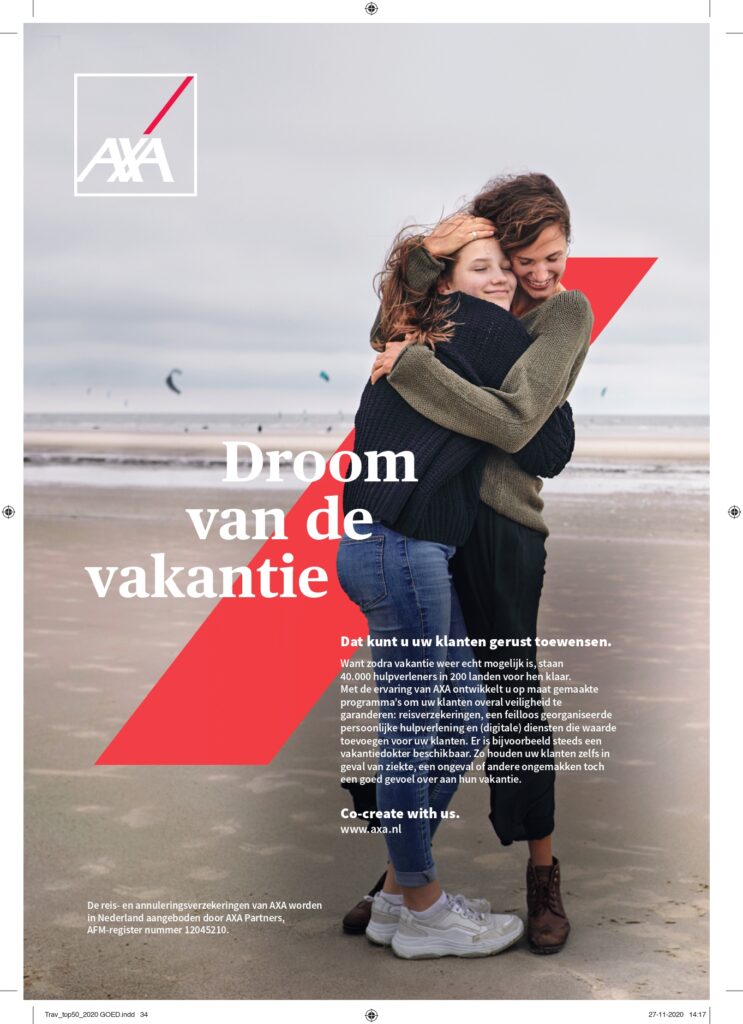
Infotorial
Allianz Partners: Insurance is more than just financial compensation
Allianz Partners has been working with the travel industry for years. Coby Tetteroo (Director of Sales): ‘It’s been quite a few years since we were called Elvia. And a lot has changed since then. But we are still a trusted partner of the travel industry.” The fact that Allianz Partners is always looking for solutions has become apparent during the corona pandemic. A voucher scheme for cancellation insurance was quickly developed and as the world opened up step by step, our insurance policies were enriched with quarantine covers. ‘We have now had a normal year and are now entering a second season. This ensures that we will also take steps towards the future,’ says Tetteroo. Global Relief Efforts With its own emergency centres in 36 countries and four Medical Global Competence Centres (MGCCs), Allianz Partners is a global emergency service provider. ‘The advantage of this expertise in all countries is that you can best help the Dutch customer with local medical knowledge. After all, it’s easier to switch between a local doctor and a hospital than with a Dutch doctor,’ says Tetteroo. ‘What makes us unique is that we use this local medical expertise to feed our knowledge system. Thanks to structured audits at local hospitals, we can determine the quality, and all care providers have direct insight into whether a hospital is suitable to provide medical care to your customer or whether it is better to repatriate to another hospital.’ One of the Medical Global Competence Centers is located in Brussels. This is where the complex requests for help are handled. They also provide aid to countries such as the United Kingdom, France and Spain. We work closely with the MGCC in Canada, where all requests for help in North America are handled. Tetteroo: ‘About half of all gross medical costs on travel insurance are incurred in the United States. It is customary there to negotiate the price of medical assistance. The experience and scale of our MGCC in Canada give us a unique position in this regard. This helps us to keep travel to the U.S. insurable.” 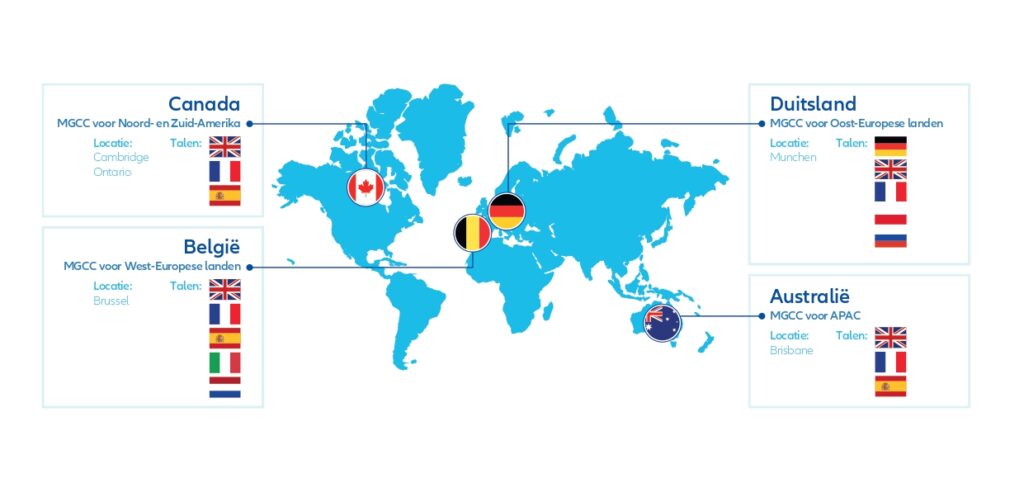 Challenges in 2024 The development of medical costs will remain a challenge in 2024. ‘In the United States, you can easily pay twenty times the Dutch rate for medical treatment. On the one hand, this is an important selling point for travel insurance, but at the same time it is also a challenge to keep the insurance affordable. That is why we make a distinction on our short-term travel insurance between World coverage including or excluding North America.’ Another challenge is the development of the increasing claim burden on cancellation insurance. ‘This is partly due to the fact that more and more older people have the time and money to travel on continuous travel insurance. But we also see that dynamic packaging is being used more and more often, deviating from the ANVR scale. We are often confronted with non-refundable booking elements, which means that we have to pay out more than before,’ says Tetteroo. Digital travel companion allyz In addition to the developments in API links, such as BAS by Fadiro, and at product level, Allianz Partners announced the introduction of digital services at the beginning of this year. These services have been offered by Allianz in the United States for some time. “The advantage of a global organization is that you share the development capacity and can apply proven successes in multiple countries. However, it is necessary to use the same back-office system worldwide, so that the digital services can connect seamlessly. We are currently working hard to connect the Netherlands to this system as well. Although the system migration is unfortunately not entirely without a struggle, we are convinced that it will result in a better service. We also see the success in the countries around us that preceded us in the transition to the new system, such as Germany and France,’ says Tetteroo.
Challenges in 2024 The development of medical costs will remain a challenge in 2024. ‘In the United States, you can easily pay twenty times the Dutch rate for medical treatment. On the one hand, this is an important selling point for travel insurance, but at the same time it is also a challenge to keep the insurance affordable. That is why we make a distinction on our short-term travel insurance between World coverage including or excluding North America.’ Another challenge is the development of the increasing claim burden on cancellation insurance. ‘This is partly due to the fact that more and more older people have the time and money to travel on continuous travel insurance. But we also see that dynamic packaging is being used more and more often, deviating from the ANVR scale. We are often confronted with non-refundable booking elements, which means that we have to pay out more than before,’ says Tetteroo. Digital travel companion allyz In addition to the developments in API links, such as BAS by Fadiro, and at product level, Allianz Partners announced the introduction of digital services at the beginning of this year. These services have been offered by Allianz in the United States for some time. “The advantage of a global organization is that you share the development capacity and can apply proven successes in multiple countries. However, it is necessary to use the same back-office system worldwide, so that the digital services can connect seamlessly. We are currently working hard to connect the Netherlands to this system as well. Although the system migration is unfortunately not entirely without a struggle, we are convinced that it will result in a better service. We also see the success in the countries around us that preceded us in the transition to the new system, such as Germany and France,’ says Tetteroo.
‘You can now try Allyz for free’
The digital travel companion allyz consists of two parts: Travel and Cyber. It is explicitly not a transactional app, but purely focused on service. In the Travel section, users can enter an itinerary, which provides real-time information about flight delays and gate changes. In the event of a flight delay, the insured will be granted access to the lounge and will be notified if they are eligible for compensation. In addition, customers will find in the app a medical section with a symptom checker, the possibility to chat with a doctor and a hospital visitor. This makes it easier for customers to coordinate whether an on-site doctor’s visit is necessary and to find the right medical provider on site during his or her trip. The Cyber module is free to try, but will not be included in the travel insurance as standard. Customers can subscribe to it after a trial period. This includes a secure VPN, so customers can browse safely when using public Wi-Fi while on vacation. Tetteroo: ‘These new services fit very well with our identity as a care provider. Insurance is more than just offering financial compensation.’
